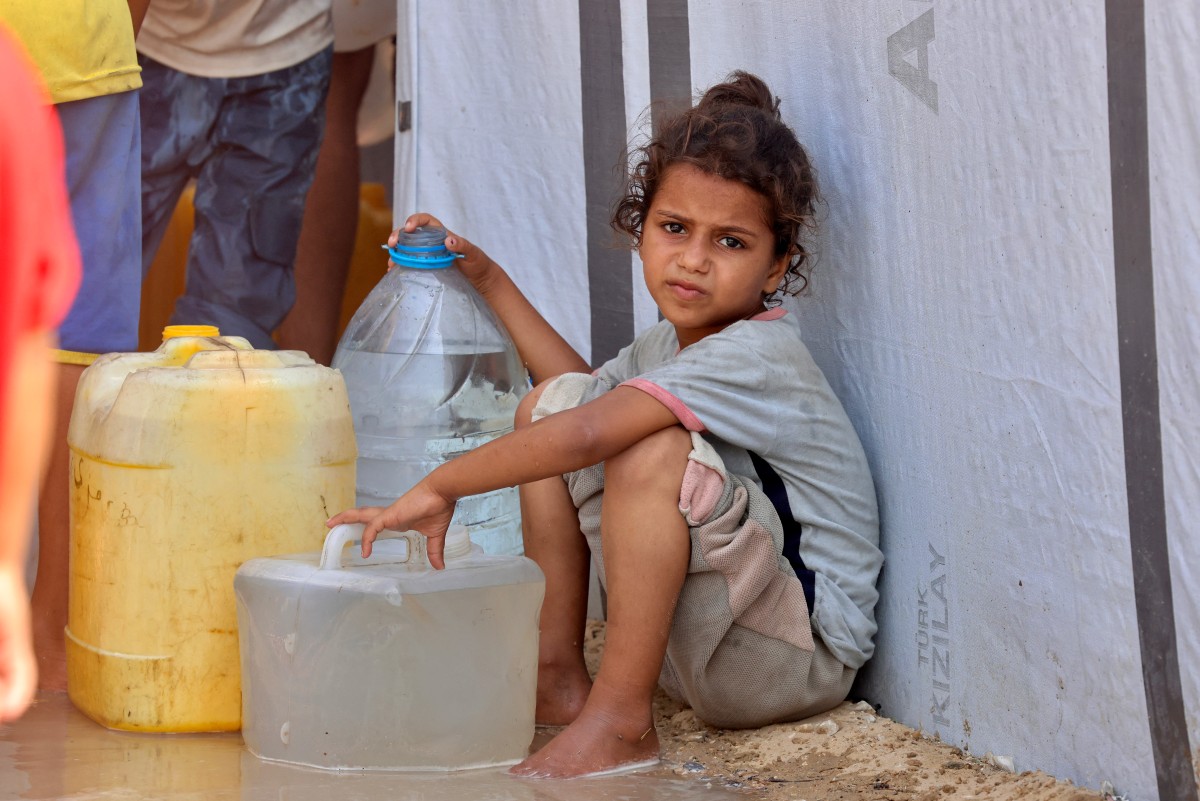Jerusalem, Undefined — New Israeli legislation regulating foreign aid groups has increasingly been used to deny their requests to bring supplies into Gaza, a joint letter signed by more than 100 groups said Thursday.
Ties between foreign-backed aid groups and the Israeli government have long been tense, with Israeli officials often complaining that the organizations are biased.
Those rocky relations have become even more strained since Hamas’s October 2023 attack on Israel triggered the Gaza war.
“Israeli authorities have rejected requests from dozens of NGOs to bring in lifesaving goods, citing that these organizations are ‘not authorized to deliver aid’,” the aid groups said.
COGAT, the Israeli defense ministry body overseeing civil affairs in the Palestinian territories, rejected what it called “false claims” made by the organizations.
According to the joint letter, whose signatories include Oxfam and Doctors Without Borders (MSF), at least 60 requests to bring aid into Gaza were rejected in July alone.
UK-based Oxfam said that $2.5 million worth of its supplies, including food, were barred from entering Gaza, while another charity, CARE, said it had not been authorized to bring in aid since March.
Another signatory, Anera, said it had over seven million dollars’ worth of supplies, including enough rice for six million meals, waiting just outside Gaza in the Israeli port city of Ashdod.
But COGAT denied Israel was blocking supplies.
“Israel acts to allow and facilitate the entry of humanitarian aid into the Gaza Strip, while Hamas seeks to exploit the aid to strengthen its military capabilities and consolidate its control over the population,” it wrote on X.
“This is sometimes done under the cover of certain international aid organizations, whether knowingly or unknowingly,” added COGAT, which said that close to 380 trucks had entered the Gaza Strip on Wednesday.
‘Hostile activity’
But Amjad Al-Shawa, head of the Palestinian NGOs Network in Gaza, told AFP that Israel “continues to prevent international NGOs from bringing their trucks” into the territory.
“The number of trucks entering Gaza (each day) is only between 70 and 90 at best,” he said.
In March, the Israeli government approved a new set of rules for foreign non-governmental organizations working with Palestinians.
The law updates the framework for how aid groups must register to maintain their status within Israel.
Registration can be refused if Israeli authorities deem that a group denies the democratic character of Israel or “promotes delegitimization campaigns” against the country.
“Unfortunately, many aid organizations serve as a cover for hostile and sometimes violent activity,” said Diaspora Minister Amichai Chikli, whose ministry has been put in charge of NGO registrations.
“Organizations that have no connection to hostile or violent activity and no ties to the boycott movement will be granted permission to operate,” he added.
Deadly distributions –
The aid groups complained that the new rules were leaving Gazans without life-saving assistance.
“Today, international NGOs’ fears have proven true: the registration system is now being used to further block aid and deny food and medicine in the midst of the worst-case scenario of famine”, their joint letter concluded.
“Our mandate is to save lives but due to the registration restrictions, civilians are being left without the food, medicine and protection they urgently need,” said Jolien Veldwijk, Palestinian territories director for CARE.
Israel has long accused Hamas of diverting aid entering the territory under the UN-led distribution system.
Since May, it has distributed aid through the US-backed Gaza Humanitarian Foundation, an organization that is boycotted by the UN and other aid groups over accusations it serves Israeli military objectives.
According to Gaza’s civil defense agency, the GHF’s operations have been frequently marred by chaos as thousands of Gazans have scrambled daily to approach its hubs, where some have been shot, including by Israeli soldiers.
In late July, the United Nations reported that at least 1,373 Palestinians had been killed in Gaza since May 27 while waiting or searching for aid.
International NGOs now fear they could be barred from operating in Israel and the Palestinian territories altogether if they do not submit sensitive information about their Palestinian staff to the Israeli government.
The deadline for information submission is in September, at which point “many could be forced to halt operations in Gaza and the West Bank, including east Jerusalem, and remove all international staff within 60 days.”








